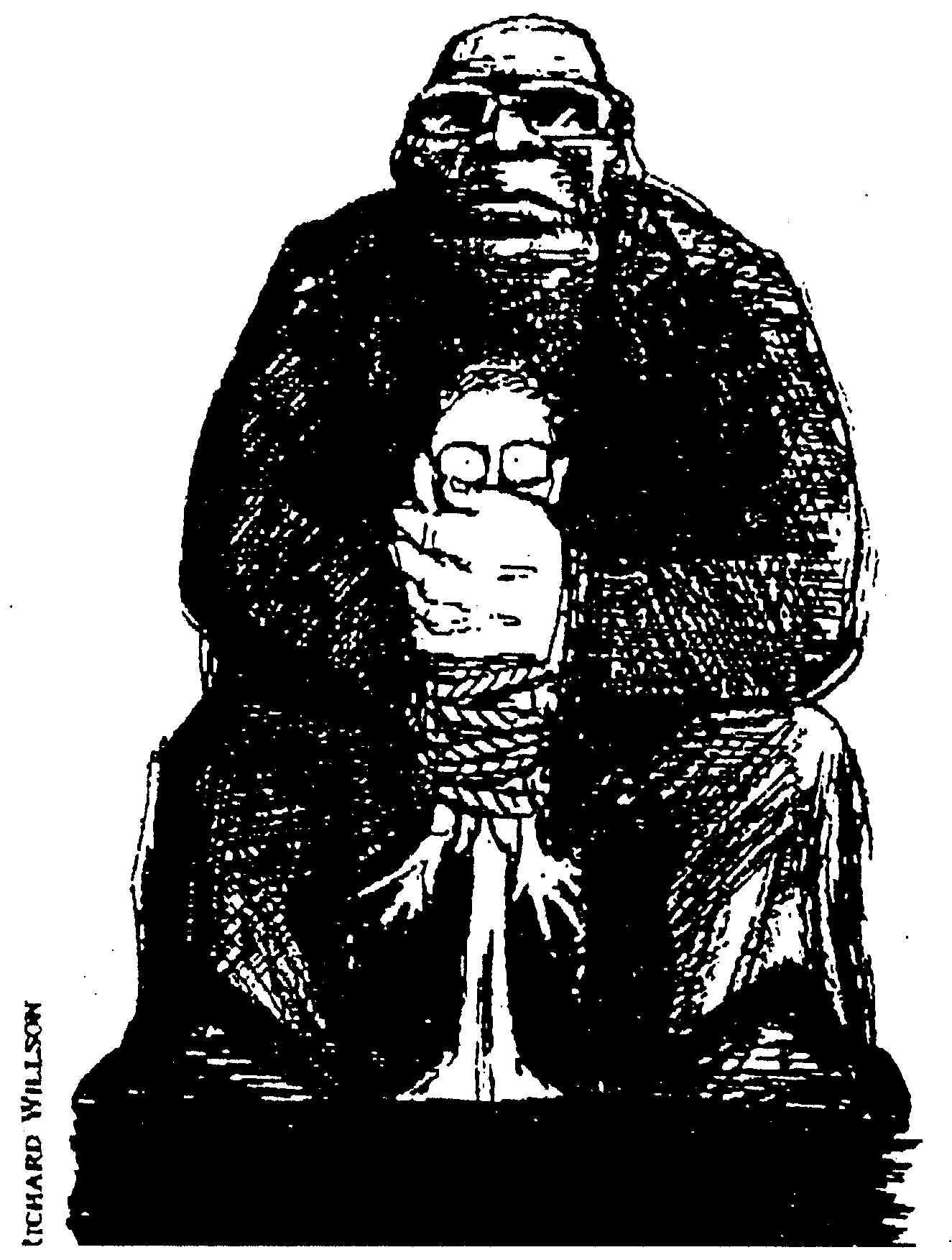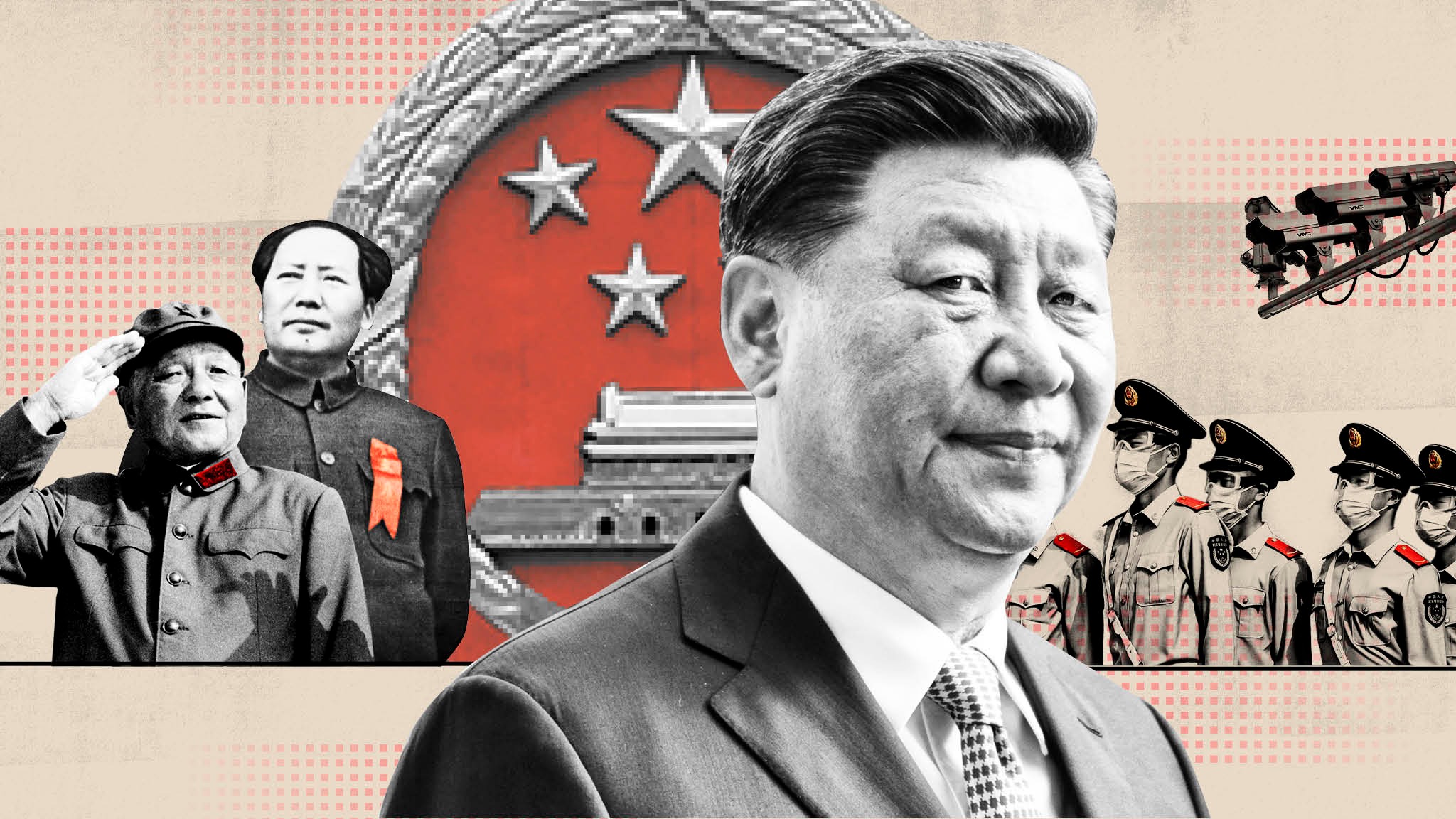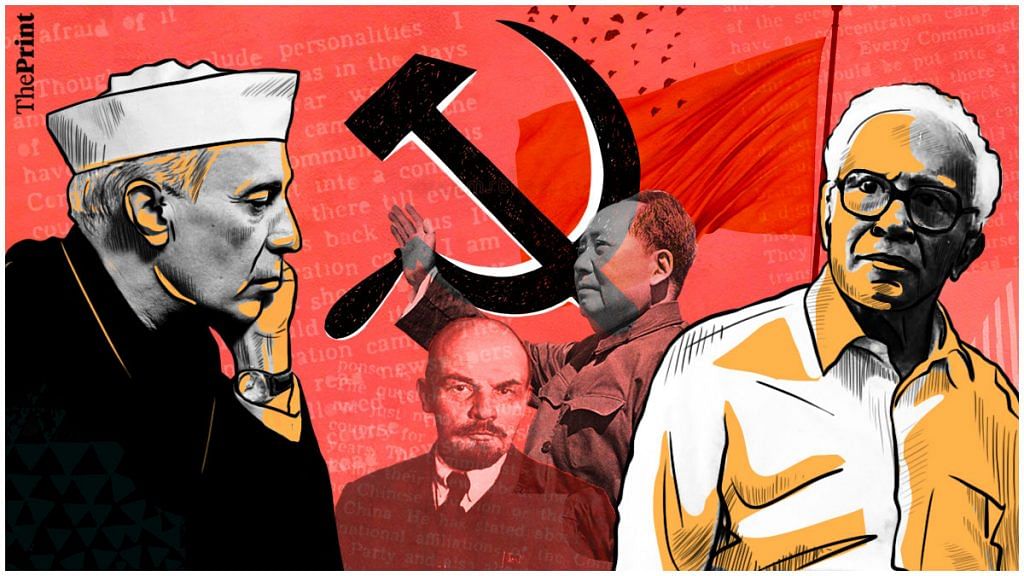S
Shruti Dasgupta
Guest
Communism is often portrayed as the champion of equality and a utopian society. However, a look around the world will unmask its true face. Communist ideology in politics frequently takes a stark turn towards autocracy. While communism’s founding fathers, Karl Marx and Friedrich Engels, envisioned a classless society, the practical implementation of their ideals shows that communist regimes often exhibit authoritarian tendencies. So why does communism, despite its idealistic beginnings, frequently lead to autocratic rule? What is the reality of Communism in China, North Korea, West Bengal, and Kerala?

PC Prezi
Communism, as envisioned by Marx and Engels, aimed to eliminate class distinctions among the rich and poor. Their idea was to eliminate wealth inequality by destroying the oppressive structures that coalesce powers in a capitalist society. They stridently believed that a communist society would be stateless and selfless. Karl Marx, the father of communism, stated his views on the subject as:
“From each according to his ability, to each according to his needs.”
Collective ownership of the means of production and individual contribution to the better of society as per their abilities were the foundation pillars of this idea. Consequently, fair distribution of rewards as per needs would allow humans to have selfless goals of common good and common progress.
While communism’s august ideals are noble, its implementation often falls short. The trajectory of the revolutionary fervor of communism often descends into autocratic rule. The following are a few factors that may have a hand in the resultant autocratic setup in communist states:
:max_bytes(150000):strip_icc()/large-hand-holding-rope-tied-round-group-of-small-people-763159011-5af485fd3418c6003875ce2b.jpg)
PC ThoughtCo
One of the core problems lies in the centralization of power. In China, Mao Zedong consolidated his power to suppress all rivals and dissenters. His legacy is carried on by the CCP’s Xi Jinping to the point where the Iron Curtain no longer descends in Russia but in China. Another fine example of the descent into autocracy is North Korea. Kim Jong-un’s authority is absolute in the nation. The dissent is so strongly suppressed that all citizens who leave North Korea are labeled as ‘Betrayers of the Nation’.

PC Brian Martin
The rise of unbalanced absolute power in Communist regimes often leads to suppression of dissent. Censorship, propaganda, and perception management are tools used by those drunk on power to maintain control of the masses. Even the dissenting voices of journalists, critics, and analysts are stifled. All rivals and opposition are ruthlessly quashed. These situations lead to a lack of alternatives for the masses. There is no other option but to choose the abusers of your trust in an election. This starts a vicious cycle of uncontested elections and a sense of entitlement in the leaders who used to believe in the communist ideal of equality for all.

PC Axios
Communist economic systems often prioritize collective ownership. All individual successful enterprises are either patronized or controlled by the government. A prime example is Alibaba where the Chinese government allegedly asked its CEO Jack Ma to step down in favor of its stooge. Such examples showcase that individual success is not justly honored unless it is within the guidelines of the political party in power. Inefficiencies and resource misallocation are common in autocratic pseudo-communist states. Moreover, economic mismanagement contributes to building public faith in the administration. They are allowed to feel safe under the authoritarian measures taken by the government under the guise of stability.

PC Financial TImes
China, despite its communist roots, has evolved into a one-party state. The Chinese Communist Party (CCP) has risen as the true Chinese Dragon under leaders like Mao Zedong and Xi Jinping. The complete ban on outside influence via the internet or publication is a key feature of China’s pseudo-communism. China’s political landscape is turning increasingly towards an authoritarian. The last nail in communism’s coffin was hammered in by Xi Jinping himself when he removed limits on the presidential term. Misinformation campaigns and propaganda are the key takeaways from China’s Communism.

PC Pelican Magazine
North Korea has been under the Kim dynasty. This is an extreme example of communism turned autocratic. The Kim family’s stranglehold on the power structure within North Korea is similar to that of a Monarchy. Persistent dynastic approach to power assimilation over seven decades has resulted in making North Korea a perfect model of Pseudo-communism. Under the current leader, Kim Jong Un the regime is notorious for its isolationist ideology.
Those who can escape from under the thumb of the ruling Workers’ Party tell horror stories of severe human rights abuses. Most of them remember the presence of a ‘cult of personality’ and blind faith of the population in their ‘leader.’ The almost fanatical approach to the militarization of the nation and its low literacy index has further crippled the nation’s growth. From hairstyles to clothes, everything is decided for the people of North Korea. The string propaganda against South Korea, the US, and the rest of the world ensures that its people never lose faith in the nation, its ruling party, and its powerful autocratic leader.
When the communist wave reached its crescent in the world, India also dipped its toes in the waters of communism. Communism took root in states like West Bengal and Kerala. While overt communism was never allowed to progress by the Indian administration, the subtle influence of this ideology is still visible in these states. The recent actions of the TMC in West Bengal are similar if not the same in West Bengal. The red flags of communism still fly high in Kerala. Although the levels of autocracy as seen in China or North Korea is not present, Indians in these state face similar challenges.

PC The Print
In West Bengal, the Communist Party of India (Marxist), or CPIM, held power for over three decades. While their land reforms were initially hailed, the party’s tenure also witnessed political violence, suppression of opposition, and a declining industrial landscape. Thus, while the rest of India progresses, West Bengal continues to be in a state of sluggish progress.
The people of Bengal overthrew this communist regime by casting their votes for the All India Trinamool Congress or TMC. However, instead of ridding West Bengal of its communist identity, the party has taken it down the road of autocracy. The death of BJP leaders during the recent panchayat elections is a prime example of how autocracy descends in any region. Dissenters are suppressed, rivals are murdered, and state forces collide with national ones in a show of power. Such is the state of affairs in the state which gave India most of its Nobel Prize winners.

PC Tfipost.com
Kerala is often touted as a model for social development. The state has seen alternating periods of communist and non-communist rule. The state’s focus on social welfare has been lauded, but critics argue that it has hindered economic growth. The region suffers from brain drain where the intelligentsia has left the state to look for progress in other parts of the nation as well as the world.
The economic development is stagnant, the state survives mostly on tourism. The suppression of religion is Kerala’s common thread with China and North Korea. Thus, the state has seen a decline in the Hindu population and a rise in conversion statistics in the past few decades.
Communism’s journey from an ideology of equality to autocracy is repeatedly witnessed in the world. The centralization of power, suppression of dissent, and propaganda machinery are the tools often used by pseudo-communist leaders to misguide the public. While communism’s founders aimed for a classless society, an objective view of human history shows that authoritarianism often prevails. China and North Korea serve as stark reminders to lovers of communism in India. Although communism takes a different path in different parts of the world, the destination is always detrimental to human freedom of thought. Thus, the paradox of communism lies in its aspiration for a non-existent utopia while frequently ending up in autocracy.
The post Paradox of Communism: From Ideals to Autocracy appeared first on The Jaipur Dialogues.
Continue reading...
Communism’s Ideals

PC Prezi
Communism, as envisioned by Marx and Engels, aimed to eliminate class distinctions among the rich and poor. Their idea was to eliminate wealth inequality by destroying the oppressive structures that coalesce powers in a capitalist society. They stridently believed that a communist society would be stateless and selfless. Karl Marx, the father of communism, stated his views on the subject as:
“From each according to his ability, to each according to his needs.”
Collective ownership of the means of production and individual contribution to the better of society as per their abilities were the foundation pillars of this idea. Consequently, fair distribution of rewards as per needs would allow humans to have selfless goals of common good and common progress.
The Descent into Autocracy
While communism’s august ideals are noble, its implementation often falls short. The trajectory of the revolutionary fervor of communism often descends into autocratic rule. The following are a few factors that may have a hand in the resultant autocratic setup in communist states:
Concentration of Power:
:max_bytes(150000):strip_icc()/large-hand-holding-rope-tied-round-group-of-small-people-763159011-5af485fd3418c6003875ce2b.jpg)
PC ThoughtCo
One of the core problems lies in the centralization of power. In China, Mao Zedong consolidated his power to suppress all rivals and dissenters. His legacy is carried on by the CCP’s Xi Jinping to the point where the Iron Curtain no longer descends in Russia but in China. Another fine example of the descent into autocracy is North Korea. Kim Jong-un’s authority is absolute in the nation. The dissent is so strongly suppressed that all citizens who leave North Korea are labeled as ‘Betrayers of the Nation’.
As is known throughout history; ‘Absolute Power Leads to Absolute Corruption’. Thus, unchecked consolidated powers in the hands of a few men pave the way for autocracy.
Suppression of Dissent:

PC Brian Martin
The rise of unbalanced absolute power in Communist regimes often leads to suppression of dissent. Censorship, propaganda, and perception management are tools used by those drunk on power to maintain control of the masses. Even the dissenting voices of journalists, critics, and analysts are stifled. All rivals and opposition are ruthlessly quashed. These situations lead to a lack of alternatives for the masses. There is no other option but to choose the abusers of your trust in an election. This starts a vicious cycle of uncontested elections and a sense of entitlement in the leaders who used to believe in the communist ideal of equality for all.
Economic Mismanagement:

PC Axios
Communist economic systems often prioritize collective ownership. All individual successful enterprises are either patronized or controlled by the government. A prime example is Alibaba where the Chinese government allegedly asked its CEO Jack Ma to step down in favor of its stooge. Such examples showcase that individual success is not justly honored unless it is within the guidelines of the political party in power. Inefficiencies and resource misallocation are common in autocratic pseudo-communist states. Moreover, economic mismanagement contributes to building public faith in the administration. They are allowed to feel safe under the authoritarian measures taken by the government under the guise of stability.
China: A Case in Point

PC Financial TImes
China, despite its communist roots, has evolved into a one-party state. The Chinese Communist Party (CCP) has risen as the true Chinese Dragon under leaders like Mao Zedong and Xi Jinping. The complete ban on outside influence via the internet or publication is a key feature of China’s pseudo-communism. China’s political landscape is turning increasingly towards an authoritarian. The last nail in communism’s coffin was hammered in by Xi Jinping himself when he removed limits on the presidential term. Misinformation campaigns and propaganda are the key takeaways from China’s Communism.
North Korea: The Extreme Example
PC Pelican Magazine
North Korea has been under the Kim dynasty. This is an extreme example of communism turned autocratic. The Kim family’s stranglehold on the power structure within North Korea is similar to that of a Monarchy. Persistent dynastic approach to power assimilation over seven decades has resulted in making North Korea a perfect model of Pseudo-communism. Under the current leader, Kim Jong Un the regime is notorious for its isolationist ideology.
Those who can escape from under the thumb of the ruling Workers’ Party tell horror stories of severe human rights abuses. Most of them remember the presence of a ‘cult of personality’ and blind faith of the population in their ‘leader.’ The almost fanatical approach to the militarization of the nation and its low literacy index has further crippled the nation’s growth. From hairstyles to clothes, everything is decided for the people of North Korea. The string propaganda against South Korea, the US, and the rest of the world ensures that its people never lose faith in the nation, its ruling party, and its powerful autocratic leader.
Communism in India
When the communist wave reached its crescent in the world, India also dipped its toes in the waters of communism. Communism took root in states like West Bengal and Kerala. While overt communism was never allowed to progress by the Indian administration, the subtle influence of this ideology is still visible in these states. The recent actions of the TMC in West Bengal are similar if not the same in West Bengal. The red flags of communism still fly high in Kerala. Although the levels of autocracy as seen in China or North Korea is not present, Indians in these state face similar challenges.
West Bengal:

PC The Print
In West Bengal, the Communist Party of India (Marxist), or CPIM, held power for over three decades. While their land reforms were initially hailed, the party’s tenure also witnessed political violence, suppression of opposition, and a declining industrial landscape. Thus, while the rest of India progresses, West Bengal continues to be in a state of sluggish progress.
The people of Bengal overthrew this communist regime by casting their votes for the All India Trinamool Congress or TMC. However, instead of ridding West Bengal of its communist identity, the party has taken it down the road of autocracy. The death of BJP leaders during the recent panchayat elections is a prime example of how autocracy descends in any region. Dissenters are suppressed, rivals are murdered, and state forces collide with national ones in a show of power. Such is the state of affairs in the state which gave India most of its Nobel Prize winners.
Kerala:

PC Tfipost.com
Kerala is often touted as a model for social development. The state has seen alternating periods of communist and non-communist rule. The state’s focus on social welfare has been lauded, but critics argue that it has hindered economic growth. The region suffers from brain drain where the intelligentsia has left the state to look for progress in other parts of the nation as well as the world.
The economic development is stagnant, the state survives mostly on tourism. The suppression of religion is Kerala’s common thread with China and North Korea. Thus, the state has seen a decline in the Hindu population and a rise in conversion statistics in the past few decades.
Lessons for Humanity
Communism’s journey from an ideology of equality to autocracy is repeatedly witnessed in the world. The centralization of power, suppression of dissent, and propaganda machinery are the tools often used by pseudo-communist leaders to misguide the public. While communism’s founders aimed for a classless society, an objective view of human history shows that authoritarianism often prevails. China and North Korea serve as stark reminders to lovers of communism in India. Although communism takes a different path in different parts of the world, the destination is always detrimental to human freedom of thought. Thus, the paradox of communism lies in its aspiration for a non-existent utopia while frequently ending up in autocracy.
The post Paradox of Communism: From Ideals to Autocracy appeared first on The Jaipur Dialogues.
Continue reading...
